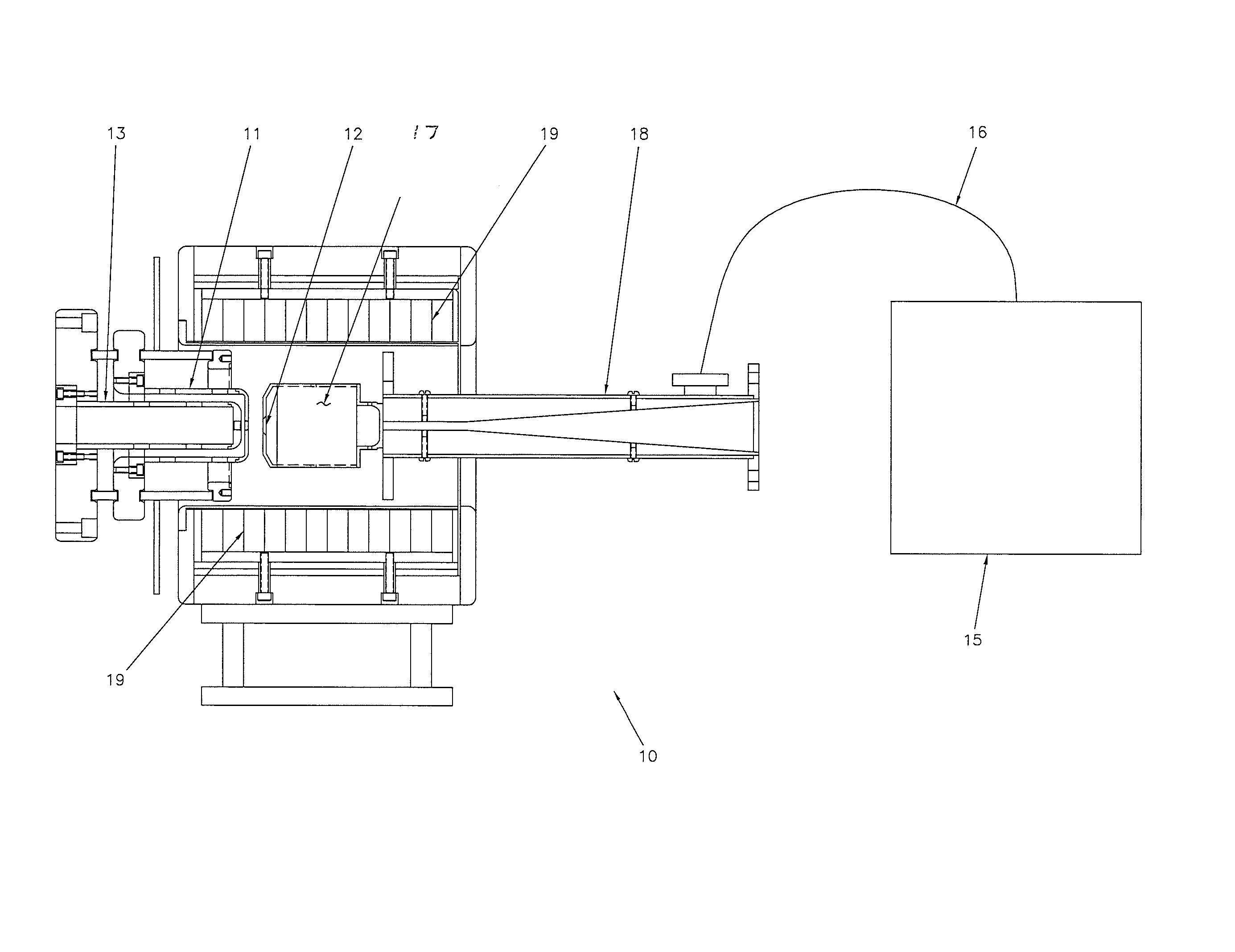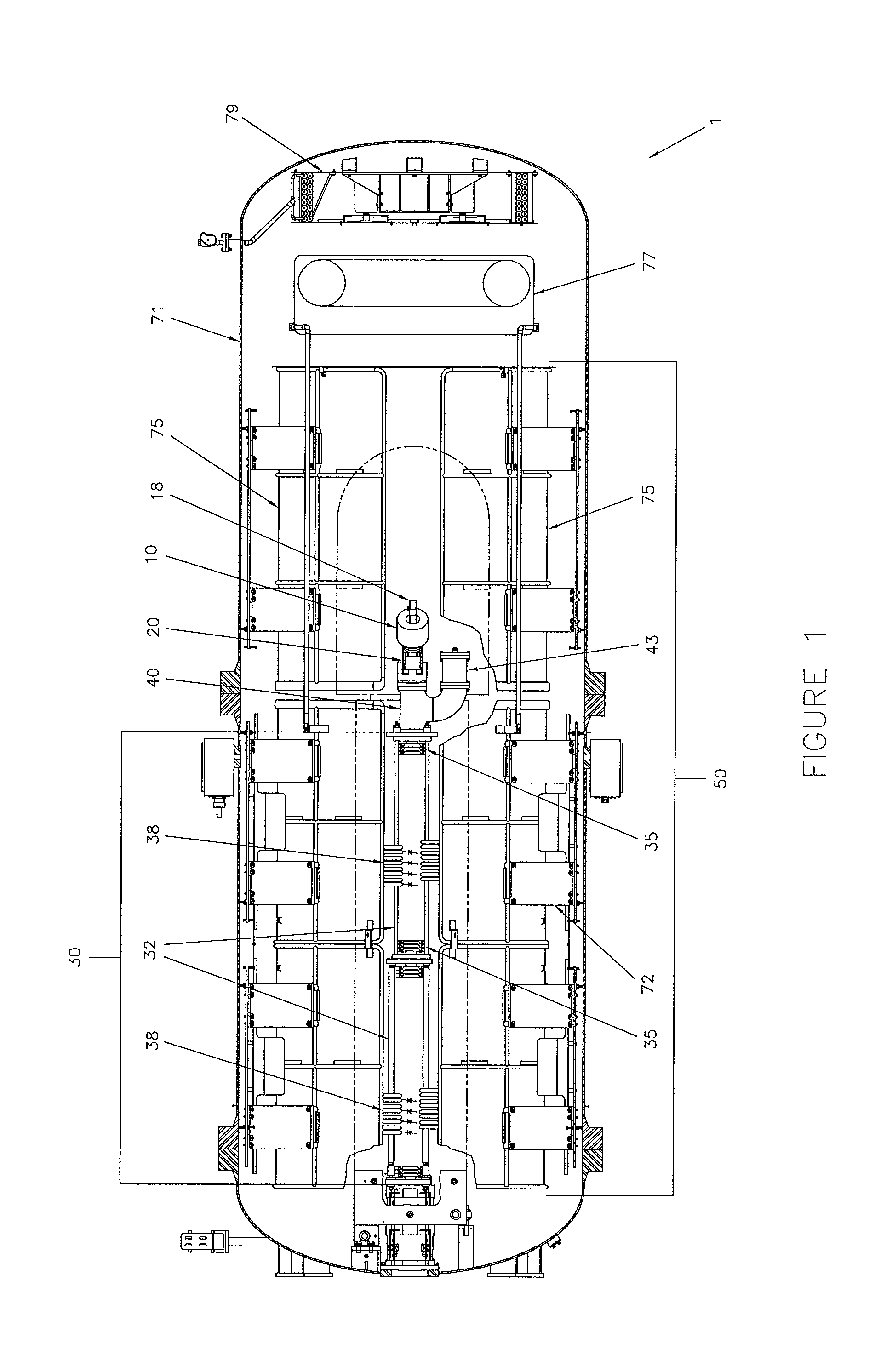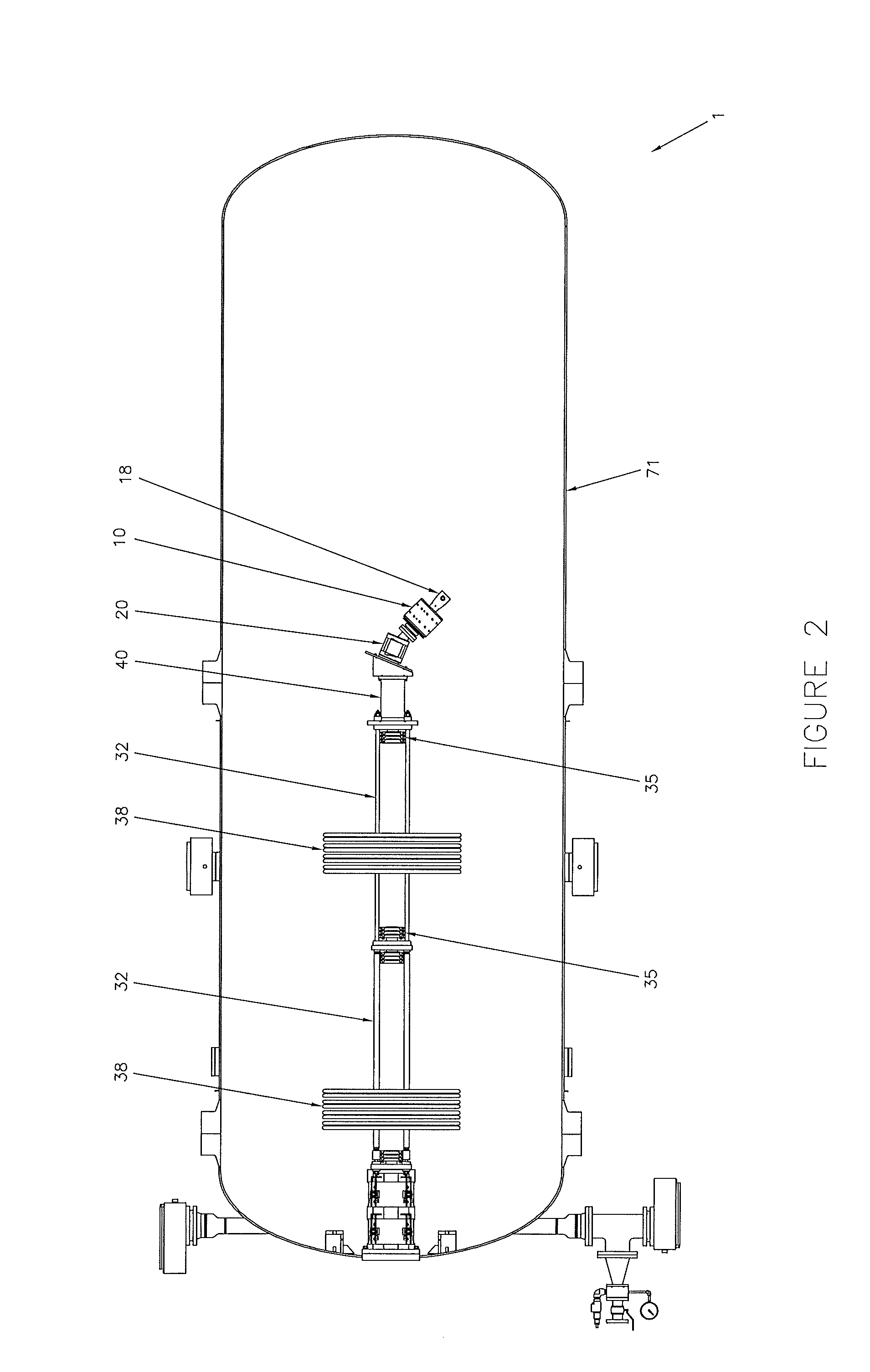High-current DC proton accelerator
a proton accelerator and high-current technology, applied in the field of proton accelerators, can solve the problems of unstable operation at higher beam currents, limited acceleration of mixed beams of atomic and molecular hydrogen ions to higher energies (up to 4.5 mev) in larger dynamitrons, and limited milliamperes of atomic and molecular hydrogen ions, so as to reduce the deleterious effects of ion-gas collisions, reduce the amount of neutral hydrogen gas
- Summary
- Abstract
- Description
- Claims
- Application Information
AI Technical Summary
Benefits of technology
Problems solved by technology
Method used
Image
Examples
Embodiment Construction
[0024]A dc accelerator system 1 able to accelerate high currents of proton beams at high energies is described. The proton beams of the invention have energies of at least about 0.3 MeV, and as high as 5 MeV at high to very high currents. At these energies, the proton accelerators produced according to the invention are able to accelerate proton beams at currents of at least about 5 mA, and as high as 100 mA while maintaining the energy of the beam.
[0025]The specific levels of the dc accelerator system 1 will depend on the intended application. For example, BNCT, energies in the range of 1.9 to 3.0 Mev are used, with beam currents of 10-20 mA. For detection of the detection of explosive materials by nuclear resonance absorption (NRA) is variable depending on the material being detected. For silicon cleaving of silicon block (for producing photovoltaic cells), currents as high as 15-25 mA, or even 30-40 mA, at energies around 4 MeV for producing thicker silicon wafers or 1 MeV or les...
PUM
 Login to View More
Login to View More Abstract
Description
Claims
Application Information
 Login to View More
Login to View More - R&D
- Intellectual Property
- Life Sciences
- Materials
- Tech Scout
- Unparalleled Data Quality
- Higher Quality Content
- 60% Fewer Hallucinations
Browse by: Latest US Patents, China's latest patents, Technical Efficacy Thesaurus, Application Domain, Technology Topic, Popular Technical Reports.
© 2025 PatSnap. All rights reserved.Legal|Privacy policy|Modern Slavery Act Transparency Statement|Sitemap|About US| Contact US: help@patsnap.com



